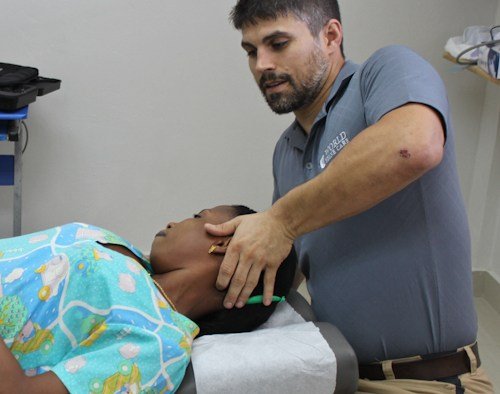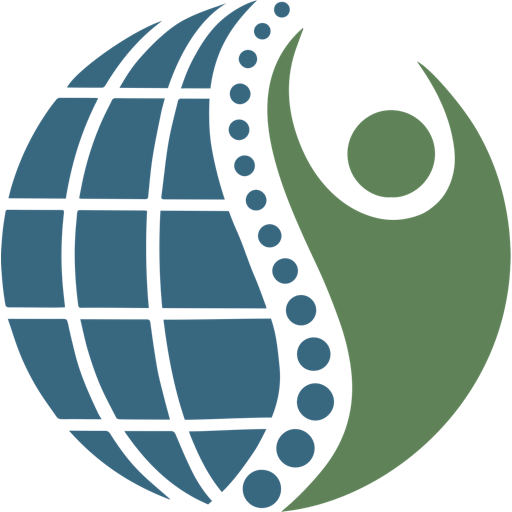In His Own Words: Clinical Coordinator Dr. Stefan Esberpaecher Leaving Botswana
Last month, Stefan Eberspaecher made the difficult decision to leave his job as the Clinical Coordinator for the Botswana WSC Clinics and to take the next step in his career as a spine care provider and Chiropractor.
Stefan will be taking six months to travel with his fiancé before he dives back into the next phase of his career. Expect to continue to see and hear from Stefan as he has committed to continuing his volunteer work with World Spine Care.
World Spine Care executive director, Stefanie Ince, sat down with Stefan to ask for his thoughts on his time in both Botswana and the Dominican Republic.




WSC: Thanks for your incredible dedication to the World Spine Care Program, Stefan. You had previously set-up and staffed the clinic in the Dominican Republic. What inspired you to take on the role of Clinical Coordinator in Botswana?
SE: I was getting a bit bored in private practice and I wanted to have a greater impact. I wanted to help people in real need.
WSC: How did you come to be involved with World Spine Care originally?
SE: Dr. Patricia Tavares called me up out of the blue one day. She said, "I have heard good things about you and we would like you to pilot our program in the Dominican Republic". I told her, "I probably shouldn't say ‘yes' right away, so call me tomorrow and I will say ‘yes'."
WSC: Botswana must have been very different from the Dominican Republic. What was the first thing that struck you about working in Botswana?
SE: The first impression I had of the people was that they are pleasant and kind people. There is very little aggression in the culture of Botswana.
WSC: What is the most important thing you've learned from this experience?
SE: Having patience. Some things don't go faster no matter how hard you push. Some things even go slower when you push harder. I learned to do everything I can to move an objective forward but ultimately to recognize when I need to just watch and wait and let others catch up.
WSC: How has this experience changed you?
SE: This experience just furthered my belief that we are all the same. It doesn't matter if you are sitting in a coffee shop in Toronto or working under the sun in a small rural village in Botswana. People just want to be productive parts of their community and feel valued. When someone is disabled by spine pain, that interferes with their ability to do that. We are lucky enough to be the ones who give them that back.
WSC: What is something that has surprised you about the experience of working within the healthcare system in Botswana?
SE: Being a salaried part of the public health care system frees one from the need to think about patients in a financial manner. It allows you to focus solely on what is important, the outcome of your patient. When you have the time to dedicate yourself to your patients it is amazing what can happen.
WSC: How are patients who suffer from spine pain in Botswana differ from patients in other areas where you have worked?
SE: Patients are often presenting with multiple comorbidities. The range of pathology you see at our clinics in Botswana is extensive. It will keep you on your toes clinically. In first world countries, you can often rely upon the low statistical likelihood of pathology to reassure you as a clinician, in Botswana, this is not a safe way to practice.
The patient has myelopathy… keep looking… multi-drug-resistant TB as well… keep looking. Be persistent, and diligent and eventually the full story will unfold. And when it does don't be surprised if you are the first person to know the whole story.
Despite the fact there is still a lot of room for progress, my work at the hospital had me in the first truly multidisciplinary environment I have ever worked in. We are seen for what we can do as opposed to who we are. I was a key part of the Department of Orthopedic Surgery and was respected as a specialist because that was the role I played. I was able to offer something that others could not readily offer and that made me an integral part of the team.
As chiropractors, we are trained exceptionally well but we rarely get a chance to exercise our skills in their entirety. In the dynamic environment of a tertiary level referral hospital, for the first time, I found myself in an environment where I could use all my skills. I sat side by side with neuro and orthopedic surgeons consulting patients. I worked with nurses and physiotherapist. I will never forget being called to consult on a pediatric patient by two oncologists. They wanted to know what the implications were of an expanding lymphoma for the young boy's spinal cord. We talked through the case and decided together as to the best course of management.
World Spine Care Director of Clinics, Dr. Geoff Outerbridge, reflected on the service of Dr. Eberspaecher.
"Stefan arrived at WSC with a host of knowledge, clinical skill, and experience.
"He has spent 5 years on the front line of clinical work in both the Dominican Republic and Botswana. In that time, he has skillfully navigated endless clinical, logistical, and administrative challenges with humour, wisdom, patience, and persistence.
"Without Stefan, WSC would not be where it is today and we are so grateful for all that he has done. Although he is not leaving WSC, we will all miss his presence in the field."
On behalf of all of us at World Spine Care, we want to thank Stefan, for all that he has done for our organization – first as a volunteer in the Dominican Republic and then as our Clinical Coordinator in Botswana. Your contributions to World Spine Care, and in particular all that you have done to drive the Botswana Program forward will be very much appreciated.

